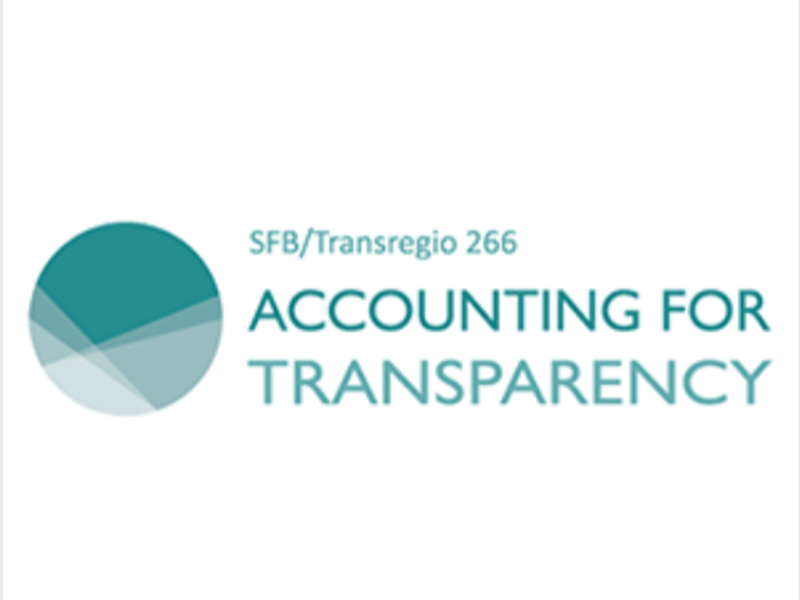2025

The Rise of Refinery Margins: The Case of the Energy Tax Cut in Germany
This paper analyzes the temporary energy tax reduction introduced by the German government from June to September 2022. Using pricing and quantity data from the wholesale markets for crude oil, gasoline, and diesel, the study finds that 80–85% of the tax cut was passed through to consumers, corresponding to a 3.7-cent-per-liter increase in wholesale prices net of tax. However, the pass-through varied substantially across time and regions. When weighted by sales volumes, the effective pass-through falls to roughly 70% for gasoline and 58% for diesel, indicating that refinery margins widened significantly during periods of higher demand. These findings highlight how temporary tax cuts can yield uneven and incomplete price transmission in energy markets.

The Origination Clause And The President's Tariffs
This paper analyzes the constitutional and statutory issues raised by President Trump’s 2025 tariff actions, now before the Supreme Court in Learning Resources, Inc. v. Trump. The authors argue that although the Origination Clause does not directly constrain the President’s tariff powers, it is crucial for interpreting whether a statute authorizes revenue-raising measures. The authors conclude that IEEPA cannot lawfully authorize the President’s tariff actions, underscoring Congress’s primary constitutional role in taxation and trade policy.

IFA Central Report: Improper Use of Tax Treaties and Source Taxation: Policy, Practice and Beyond
This is the Central Report, subject 2 of the IFA 2025 Annual Congress. It is a comprehensive review of 43 national reports, EU developments, landmark cases, and academic commentary, on the topic of treaty shopping and treaty anti-abuse developments. The report predicts that the principal purpose test will play an increasingly central role in harmonizing anti-abuse standards globally, though its practical application will remain uneven.
To read more go here

Taxing AI Across Borders: The Benefits of In-Kind Remittance for Cross-Border Taxation
This essay extends the concept of taxing artificial intelligence (AI) firms through equity rather than cash to the international context, proposing a framework under which non-U.S. jurisdictions could require a one-time equity payment from AI firms seeking to sell services within their borders. It challenges the entrenched assumption that taxes must be paid in cash, suggesting that accepting alternative forms of property (e.g., equity) could strengthen both domestic and cross-border taxation in the digital economy.

Economic Fragmentation And The Future Of International Tax Cooperation
This article argues that while deglobalisation is often seen as a threat to international taxation by reducing capital mobility, increasing tariff reliance, and pressuring governments to raise domestic taxes, moderate economic fragmentation may actually enhance global tax cooperation. By weakening the dominance of traditional governance structures and fostering a more pluralistic international environment, such fragmentation could empower the emerging UN Framework Tax Convention as a credible alternative to existing OECD-led approaches. The article suggests that measured fragmentation enables the design of tax coordination mechanisms better aligned with a regionalised global economy, promoting more adaptable and realistic frameworks for international tax governance.
Economic Fragmentation And The Future Of International Tax Cooperation (September 26, 2025). Caribbean Tax Law Journal 8 (2025), Special Issue, Available at SSRN: https://ssrn.com/abstract=5598410 or http://dx.doi.org/10.2139/ssrn.5598410

Tariffs as Fiscal Policy
This paper examines the fiscal and economic consequences of the Trump administration’s 2025 policy shift, which paired sweeping tariff hikes with major income tax cuts. It shows that while maintaining tariffs at summer 2025 levels would yield substantial government revenue, the efficiency costs would amount to nearly one-third of those revenues, the overall tax system would become less progressive, and enforcement challenges would intensify. Macroeconomically, broad tariffs act as a severe negative supply shock, fueling inflation while depressing economic activity—outcomes that run counter to the policy’s stated goals.

The Global Minimum Tax and The Future of International Taxation
This article critically assesses the Global Minimum Tax, agreed upon by more than 140 countries and hailed as the most important reform of international business taxation in a century. While recognizing the political and technical achievement, it argues that the reform’s impact is mixed and that the international tax system remains fundamentally weak. The analysis attributes this to the policy itself rather than to flaws in implementation, emphasizing that layering a minimum tax onto the existing origin-based framework leaves intact the system’s incentive incompatibilities and destabilizing forces. By reinforcing this flawed foundation, the Global Minimum Tax not only limits its own effectiveness but also makes it harder to pursue alternative reforms that would break from the origin-based model. The article concludes that despite the celebrated breakthrough, the system continues to perform poorly and that more radical reform options are being sidelined.

Transparency, Trust, Transnationality, and Tax Compliance: Lessons from Google's Financial Reporting Practices in New Zealand
This article uses New Zealand to illustrate how tax transparency shapes public trust in government, the private sector, and among taxpayers, with particular attention to corporate income taxation of multinationals and its effects on voluntary compliance in an open-economy welfare state. The article analyzes the interaction of New Zealand’s tax system and financial reporting regime, alongside Google’s reporting practices, and identifies three structural weaknesses: poor coordination between tax and reporting frameworks, limited transparency in tax administration, and weak mechanisms for addressing distrust of multinationals. It concludes that reforms to strengthen disclosure and align regulatory structures are essential to protect the integrity of the tax system and voluntary compliance, offering lessons for other jurisdictions such as Canada.

Comprehensive Analysis of Tariff Effects on the United States Economy
This article provides a comprehensive assessment of U.S. tariff policies, tracing their historical evolution, theoretical foundations, and practical impacts. It shows how tariffs reshape trade flows, raise input costs, and trigger retaliation, with effects across manufacturing, agriculture, energy, and technology. Firm-level responses include sourcing shifts and supply chain reconfiguration, while broader outcomes appear in GDP, inflation, jobs, and investment. The study also highlights the role of market structure in shaping welfare effects and situates tariff design within political economy dynamics such as stakeholder influence and electoral pressures. It notes emerging patterns linking tariffs to geopolitical strategy and trade agreements, while stressing how policy uncertainty complicates supply chains. The paper concludes by pointing to future research on tariffs’ ties to innovation, the environment, and global governance.

The Effect of Third-Country Tariffs on Bilateral Trade
This paper develops a three-country theoretical model and uses highly disaggregated transaction-level data on South Korea’s imports to analyze how third-country tariffs influence bilateral trade flows. The study shows that while bilateral applied tariffs directly reduce imports, higher tariffs imposed on competing third-country suppliers divert trade toward the partner country, with the effect varying by preferential regime and the number of alternative suppliers. These results underscore that the trade consequences of tariff changes cannot be fully understood without accounting for third-country tariff schedules, a consideration especially relevant amid current U.S. proposals for broad tariff increases.

Real Effects of Earnings Stripping Rules
This study investigates the economic consequences of the European Union’s 2019 earnings stripping rules, which restrict interest deductibility based on a firm’s profitability under the Anti-Tax Avoidance Directive. The analysis shows that the reform reduced operational risk-taking, investment, and innovation, as profit-contingent deductibility diminished the expected debt tax shield in low-profit years. The negative effects are most pronounced for firms with higher pre-reform operating risk, which subsequently face slower growth and a greater likelihood of financial distress. The findings demonstrate that profit-linked interest limitations carry significant real effects, highlighting the need for careful rule design to balance anti-avoidance goals with the preservation of firms’ investment and innovation capacity.
Source: TRR 266 Accounting for Transparency Working Paper Series No. 210


































